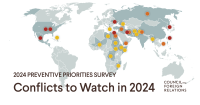Political polarization has become a defining feature of our times, shaping societies and impacting governance worldwide. In this blog, we delve into the intricate facets of political polarization, exploring its origins, manifestations, and consequences. Furthermore, we aim to identify potential avenues for mitigating polarization and fostering more constructive dialogues.

Understanding Political Polarization
What Is Political Polarization?
Political polarization refers to the divergence of political attitudes to extreme ideological positions within a society. It encompasses various dimensions, including ideology, partisanship, and policy preferences, often leading to increased division and hostility among different groups.
Factors Contributing to Polarization
-
Media Landscape: The proliferation of echo chambers and partisan media outlets has reinforced ideological divides, presenting biased narratives that cater to specific audiences.
-
Social Media Influence: Platforms have amplified polarization by creating filter bubbles, where users are exposed primarily to content that aligns with their existing beliefs, fostering confirmation bias.
-
Identity Politics: Issues related to race, gender, religion, and culture have become politicized, deepening divisions along identity lines.
-
Polarized Political Leadership: Leaders often adopt and amplify extreme positions, setting divisive tones that permeate through societies.
Manifestations of Political Polarization
Erosion of Constructive Discourse
Civil discourse and constructive debate are casualties of polarization. Instead of engaging in meaningful discussions, opposing sides often resort to demonization, name-calling, and hostility, hindering the possibility of finding common ground.
Gridlock in Governance
Polarization frequently leads to political gridlock, where legislative processes stall due to the inability of opposing parties to find consensus. This gridlock undermines effective governance, impeding progress on critical issues.
Social Fragmentation
Societies become fragmented along political lines, leading to decreased social cohesion. This fragmentation can affect various aspects of life, from community interactions to familial relationships.
Consequences of Political Polarization
Weakened Institutions
Polarization weakens trust in institutions, including government, media, and even electoral processes. This erosion of trust can have far-reaching implications for democratic stability.
Diminished Problem-Solving Capacities
The inability to collaborate across political aisles limits the capacity to address complex societal problems effectively. Issues like climate change, healthcare reform, and economic policies often suffer due to this lack of cooperation.
Increased Social Tension
Polarization can contribute to heightened social tension, leading to increased societal unrest, protests, and, in extreme cases, violence.
Navigating Towards Solutions
Fostering Empathy and Understanding
Encouraging empathy and understanding across ideological lines is crucial. Initiatives promoting civil dialogue, empathy-building exercises, and educational programs can bridge gaps and humanize differing perspectives.
Promoting Media Literacy
Empowering individuals with critical thinking skills and media literacy helps combat the spread of misinformation and encourages exposure to diverse viewpoints.
Encouraging Bipartisan Cooperation
Supporting initiatives that foster cooperation among policymakers from different parties is essential for breaking gridlocks and addressing critical issues.
Conclusion
Political polarization is a multifaceted challenge that poses significant threats to societies globally. However, by acknowledging its origins and consequences and actively seeking solutions through dialogue, education, and collaborative efforts, we can work toward building more cohesive and resilient societies where differences are respected and constructively addressed.







